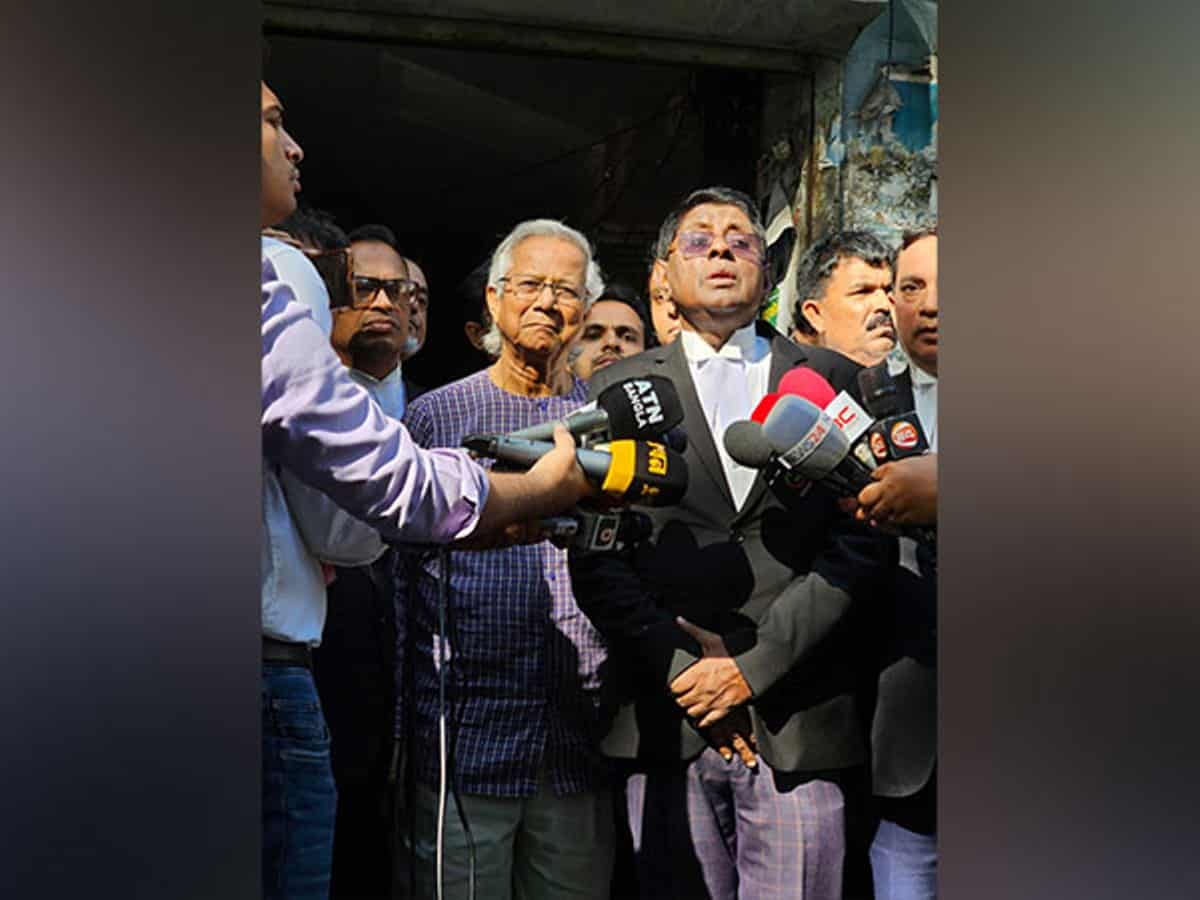
Dhaka: Bangladesh’s anti-graft agency on Thursday submitted a charge sheet against Nobel Laureate economist Dr Muhammad Yunus on a fresh corruption charge, days after a court granted him bail in a case for violating labour laws.
The Anti-Corruption Commission (ACC) accused the 83-year-old economist and 13 others of misappropriating around Tk 25.22 crore (approximately USD 2.29 million) of Grameen Telecom Workers’ Profit Participation Fund.
Yunus is the chairman of Grameen Telecom –which he founded as a non-profit organisation– while the co-defendants include its directors, managing director and employees’ trade union leaders.
“We have filed the charge sheet against him (Yunus) and 13 others before the Metropolitan Senior Special Judge’s Court of Dhaka,” an ACC spokesman told reporters.
The court has set March 3 for an indictment hearing of the case.
Law Minister Anisul Huq rejected allegations of harassing Yunus, saying the government did not fabricate any false cases against him.
“Dr Yunus was warned and advised to prevent these violations, but he ignored them. So, the Labour Department filed a lawsuit,” Huq said. “No one is above the law, and if someone commits a crime, they must face the law,” the minister said.
Earlier, ACC Secretary Mahmub Hossain said the proceedings against Yunus were initiated based on complaints against him by the Department of Inspection for Factories and Establishments, and the statutory graft agency filed the charge sheet after a long investigation.
Yunus won the Nobel Peace Prize in 2006 for his anti-poverty campaign, earning Bangladesh the reputation of being the home of microcredit through his Grameen Bank, which he founded in 1983.
He faces over 150 other cases, including major corruption charges that could see him jailed for years if found guilty. The economist denies all wrongdoing.
Last week, an appeals court granted bail to Yunus, who was sentenced on January 1 to six months in prison for violating the country’s labour laws. The court also agreed to hear an appeal against his sentencing.
Thursday’s development came days after more than 241 global leaders, including over 125 Nobel laureates, expressed their concerns over the “continuous judicial harassment and potential jailing” of Yunus in a third open letter to Prime Minister Sheikh Hasina.
Irene Khan, the UN Special Rapporteur for the Promotion and Protection of the Right to Freedom of Opinion and Expression, called the January 1 verdict “a travesty of justice”.
Khan said the social activist “who brought honour and pride to the country is being persecuted on frivolous grounds.”
“We agree with Irene Khan,” said a letter signed by global leaders, including former US President Barack Obama. The letter said that the verdict was the outcome of “the rushed legal process and lack of consistency about how Bangladesh’s laws are applied.”
Former UN Secretary-General Ban Ki-moon also reacted to the verdict. “Bangladeshis deserve a government that honours and supports — rather than persecutes — its most esteemed citizens,” he said.
“I call on the prime minister (Sheikh Hasina) to stop this senseless campaign against Professor Muhammad Yunus now,” he said.
Hasina’s Awami League party won a record fourth consecutive term in the general election held on January 7.
International rights groups, including Amnesty International, also condemned the verdict while several leading Bangladeshi civil society figures said Yunus was exposed to legal “harassment”.
In response to the global leaders’ previous letter, Hasina recently told a news conference that the signatories “should send experts, including lawyers, to go through all the documents of Professor Yunus and his cases to see if there is any wrongdoing or wrongful prosecution.”
The global leaders agreed to her proposal in their third letter, published as a full-page advertisement in the Washington Post on Monday.
“We accept your invitation . . . (But) this examination should include not only the labour law case whose verdict was delivered on January 1, but also the investigation being conducted by the Anti-Corruption Commission,” read the letter.
The previous two letters were issued in March 2023 and August 2023.
The prominent economist was in a protracted row with the incumbent government due to obscure reasons.
The government led by Hasina launched a series of investigations against him after coming to power in 2008.
Many people believe that Hasina became enraged when Yunus announced he would form a political party in 2007 when the country was run by a military-backed government and she was in prison.
However, Yunus did not follow through on the plan but criticised politicians in the country, alleging they were only interested in making money.



